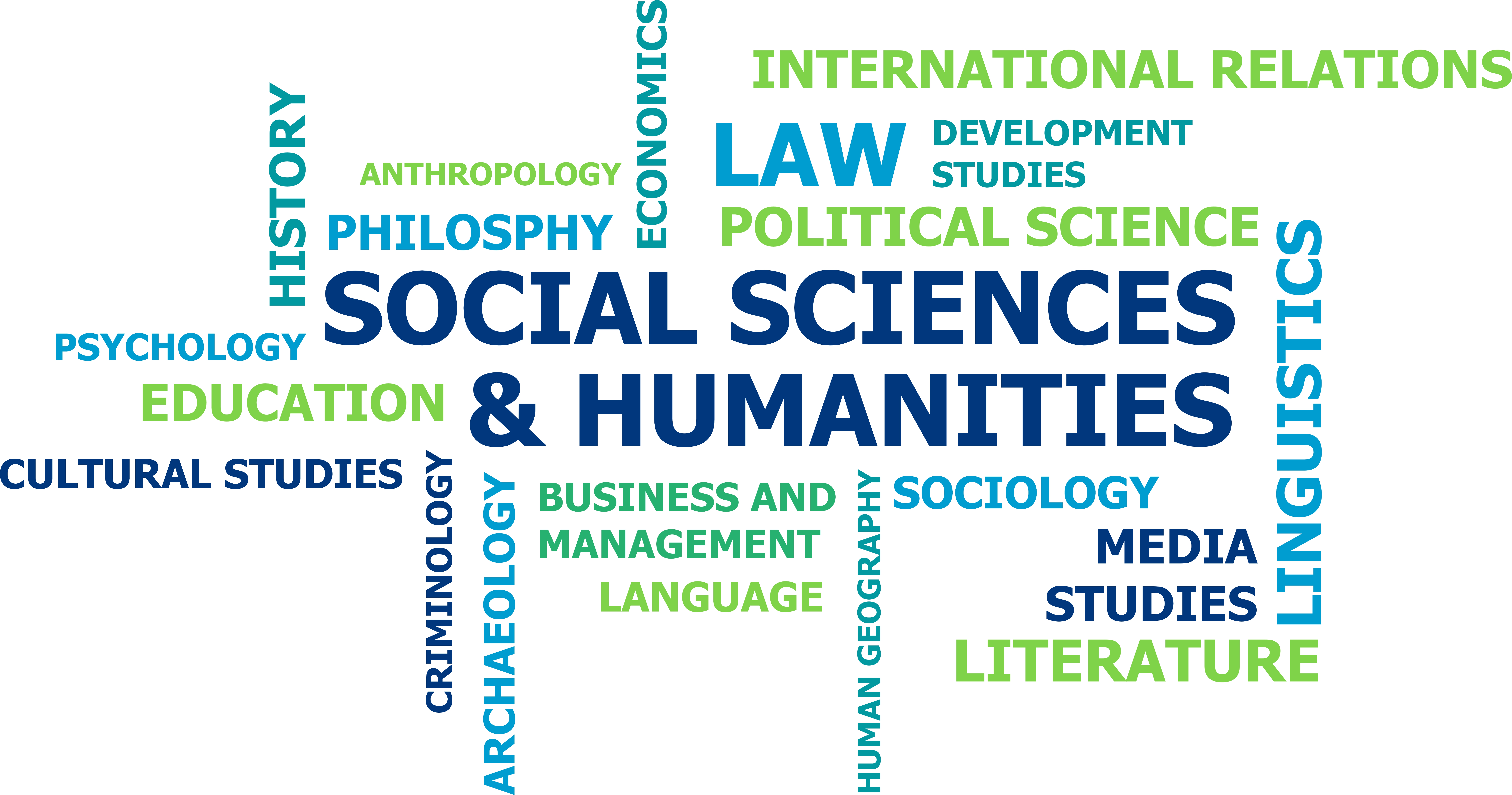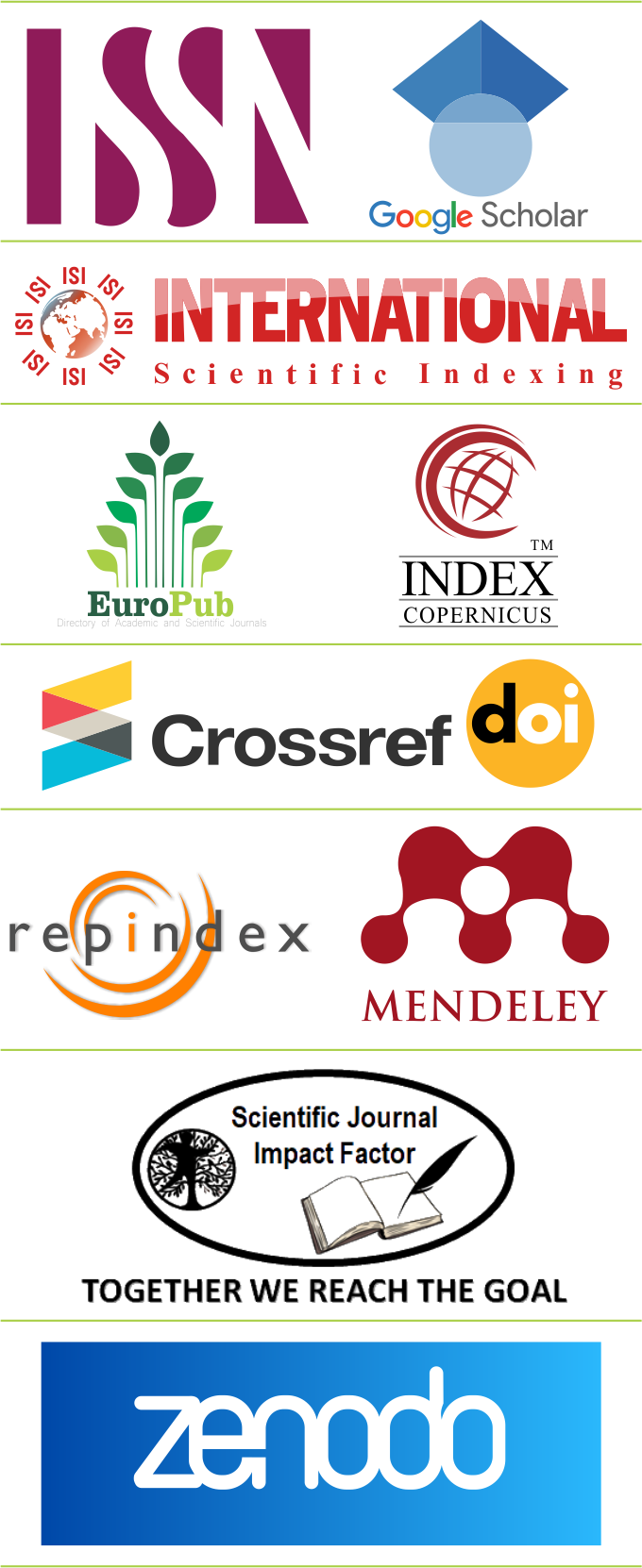From Words to Research: Examining the Role of Language Competencies in Shaping Attitudes Towards Doing Research Projects
DOI:
https://doi.org/10.55737/qjssh.152288122Keywords:
English Competence, Code-switching Competence, Bilingual Competence, Attitudes towards doing Research Projects, Undergraduate StudentsAbstract
The study examines the impact of language competencies on attitudes towards doing research projects. Specifically, the study focuses on the impact of first-language competence (Urdu), second-language competence (English), code-switching competence, and bilingual competence on attitudes towards doing research projects among undergraduate students. Employing convenience sampling, a sample of 500 undergraduate students from various disciplines at two public sector universities in Pakistan was selected. The data were collected through a well-structured questionnaire with questions related to language competencies and attitudes towards doing research projects. The hypotheses were tested using SmartPLS-4. The results revealed that first language competence, English language competence, code-switching competence, and bilingual competence have a significant and positive impact on attitudes towards doing research projects. The findings suggest that language competencies play an important role in shaping students' attitudes towards doing research projects. The study emphasizes the significance of students' language competence in developing positive attitudes towards doing research projects. Practical implications for educators, researchers, and policymakers are also discussed.
References
Abduh, A., & Rosmaladewi, R. (2018). Promoting intercultural competence in bilingual programs in Indonesia. SAGE Open, 8(3), 215824401878861. https://doi.org/10.1177/2158244018788616
Airey, J. (2020). The content lecturer and English-medium instruction (EMI): Epilogue to the special issue on EMI in higher education. International Journal of Bilingual Education and Bilingualism, 23(3), 340-346. https://doi.org/10.1080/13670050.2020.1732290
Alang, N., & Idris, S. (2018). Students’ perception towards the use of code-switching in teaching and learning. Journal of Education and Social Sciences, 11(1), 1-9. https://jesoc.com/wp-content/uploads/2018/12/JESOC-KC11_005.pdf
Alfaro, C. (2018). The sociopolitical struggle and promise of bilingual teacher education: Past, present, and future. Bilingual Research Journal, 41(4), 413-427. https://doi.org/10.1080/15235882.2018.1540367
Alkhudair, R. Y. (2019). Professors’ and undergraduate students’ perceptions and attitudes toward the use of code-switching and its function in academic classrooms. International Journal of English Linguistics, 9(6), 160-171. https://doi.org/10.5539/ijel.v9n6p160
Almelhi, A. M. (2020). Understanding code-switching from a sociolinguistic perspective: A meta-analysis. International Journal of Language and Linguistics, 8(1), 34-45. https://doi.org/10.11648/j.ijll.20200801.15
Amin, T. T., Kaliyadan, F., Al Qattan, E. A., Al Majed, M. H., Al Khanjaf, H. S., & Mirza, M. (2012). Knowledge, attitudes and barriers related to the participation of medical students in research in three Arab universities. Education in Medicine Journal, 4(1). https://doi.org/10.5959/eimj.v4i1.7
Ansar, F. A. (2017). Code Switching and Code Mixing in Teaching-Learning Process. English Education: Jurnal Tadris Bahasa Inggris, 10(1), 29–45. https://doi.org/10.24042/ee-jtbi.v10i1.873
Ashraf, H. (2023). The ambivalent role of Urdu and English in multilingual Pakistan: A Bourdieusian study. Language Policy, 22(1), 25-48. https://doi.org/10.1007/s10993-022-09623-6
Asif, M., Raza, S. A., Iqbal, J., Perwaiz, N., Faiz, T., & Khan, S. (2022). Bidirectional Encoder Approach for Abstractive Text Summarization of Urdu Language. Paper presented at the 2022 International Conference on Business Analytics for Technology and Security (ICBATS).
Aslam, F., Qayyum, M. A., Mahmud, H., Qasim, R., & Haque, I. U. (2004). Attitudes and practices of postgraduate medical trainees towards research--a snapshot from Faisalabad. PubMed, 54(10), 534–536
Basco, R., Hair, J. F., Ringle, C. M., & Sarstedt, M. (2022). Advancing family business research through modelling nonlinear relationships: Comparing PLS-SEM and multiple regression. Journal of Family Business Strategy, 13(3), 100457. https://doi.org/10.1016/j.jfbs.2021.100457
Beatty-Martínez, A. L., & Dussias, P. E. (2017). Bilingual experience shapes language processing: Evidence from codeswitching. Journal of Memory and Language, 95, 173-189. https://doi.org/10.1016/j.jml.2017.04.002
Beltrán, C. G. (2013). Challenges of Bilingualism in Higher Education: The Experience of the Languages Department at the Universidad Central in Bogotá, Colombia. Gist: Education and Learning Research Journal, 7, 245–258. https://doi.org/10.26817/16925777.36
Bohman, T. M., Bedore, L. M., Peña, E. D., Mendez-Perez, A., & Gillam, R. B. (2010). What you hear and what you say: language performance in Spanish–English bilinguals. International Journal of Bilingual Education and Bilingualism, 13(3), 325–344. https://doi.org/10.1080/13670050903342019
Bukhari, S. K. U. S., Shahzad, A., & Ali, R. (2022). Role of Code Switching as an Effectual Training for Communication for Quality of Education under SDG No 4. Pakistan Journal of Educational Research and Evaluation (PJERE), 10(1), 77-104. http://111.68.103.26/journals/index.php/PJERE/article/viewFile/5726/2678
Chen, X., He, J., & Fan, X. (2022). Relationships between openness to experience, cognitive flexibility, self-esteem, and creativity among bilingual college students in the U.S. International Journal of Bilingual Education and Bilingualism, 25(1), 342-354. https://doi.org/10.1080/13670050.2019.1688247
Devonish, H., & Carpenter, K. (2007). Towards full bilingualism in education: The Jamaican bilingual primary education project. Social and Economic Studies, 277-303.
Edmon, S. J. E., & Hema, N. (2022). The need for a bilingual mode of instructional design for higher education. ECS Transactions, 107(1), 10785-10796. https://doi.org/10.1149/10701.10785ecst
Evis, L. H. (2021). A critical appraisal of interdisciplinary research and education in British higher education institutions: A path forward? Arts and Humanities in Higher Education, 21(2), 119-138. https://doi.org/10.1177/14740222211026251
Fachriyah, E. (2017). The functions of code-switching in an English language classroom. Studies in English Language and Education, 4(2), 148-156. https://doi.org/10.24815/siele.v4i2.6327
Fernández, D. M., & Julius, S. M. (2017). Quality factors in bilingual education at the university level. Porta Linguarum: revista internacional de didáctica de las lenguas extranjeras(28), 49-66. https://doi.org/10.30827/digibug.54002
García, O., & Wei, L. (2014). Language, bilingualism and education Translanguaging: Language, bilingualism and education (pp. 46-62): Springer.
Garcia, J. V. (2022). Integration of intercultural communicative competence: A case of English language teachers in higher education. English as a Foreign Language International Journal, 2(1), 28-58. https://doi.org/10.56498/163212022
Green, D. W. (2018). Language Control and Code-switching. Languages, 3(2), 8. https://doi.org/10.3390/languages3020008
Hair, J., Black, W., Babin, B., & Anderson, R. (2010). Multivariate data analysis: A global perspective: Pearson Prentice Hall. New Jersey, USA.
Hamers, J. F., Blanc, M., Blanc, M. H., & Hamers, J. F. (2000). Bilinguality and bilingualism: Cambridge University Press.
Heineke, A. J., Smetana, L., & Carlson Sanei, J. (2018). A qualitative case study of field-based teacher education: One candidate’s evolving expertise of science teaching for emergent bilinguals. Journal of Science Teacher Education, 30(1), 80-100. https://doi.org/10.1080/1046560x.2018.1537058
Hren, D., Lukic, I. K., Marusic, A., Vodopivec, I., Vujaklija, A., Hrabak, M., & Marusic, M. (2004). Teaching research methodology in medical schools: students’ attitudes towards and knowledge about science. Medical Education, 38(1), 81–86. https://doi.org/10.1111/j.1365-2923.2004.01735.x
Irfan, H. (2022). Undergraduate students' uses of code-switching (CS) in Pakistani universities: A reflective study. Journal of Development and Social Sciences, 3(II), 426-434. https://doi.org/10.47205/jdss.2022(3-ii)41
Iswandari, Y. A., & Ardi, P. (2022). Intercultural communicative competence in EFL setting: A systematic review. rEFLections, 29(2), 361-380. https://doi.org/10.61508/refl.v29i2.260249
Jan-Petter, B., & Gumperz, J. J. (2020). Social meaning in linguistic structure: code-switching in Norway The Bilingualism Reader (pp. 75-96): Routledge.
Kanwal, R., Hussain, M. S., & Farid, A. (2022). Second Language Acquisition (SLA) and Bilingualism: Impact of Mother Tongue on English as a Second Language (ESL) Learners. Research Journal of Social Sciences and Economics Review, 3(3), 100-111.
Khan, H., Khawaja, M. R., Waheed, A., Rauf, M. A., & Fatmi, Z. (2006). Knowledge and attitudes about health research amongst a group of Pakistani medical students. BMC Medical Education, 6(1). https://doi.org/10.1186/1472-6920-6-54
Korpershoek, H., Canrinus, E. T., Fokkens-Bruinsma, M., & De Boer, H. (2019). The relationships between school belonging and students’ motivational, social-emotional, behavioural, and academic outcomes in secondary education: A meta-analytic review. Research Papers in Education, 35(6), 641-680. https://doi.org/10.1080/02671522.2019.1615116
Lehrl, S., Ebert, S., Blaurock, S., Rossbach, H., & Weinert, S. (2020). Long-term and domain-specific relations between the early years home learning environment and students’ academic outcomes in secondary school. School Effectiveness and School Improvement, 31(1), 102-124. https://doi.org/10.1080/09243453.2019.1618346
López, L. (2017). Code-switching and linguistic theory. Bilingualism in the Hispanic and Lusophone World, Tallahassee, Florida.
Luo, N., Jiang, D., Zhao, S., Gong, C., Zou, W., & Li, X. (2018). Towards end-to-end code-switching speech recognition. arXiv preprint arXiv:1810.13091.
Melo-Pfeifer, S. (2015). Translanguaging. Language, bilingualism and education. Taylor & Francis.
Nawaz, N., Atta, A., & Naseem, N. (2023). The impact of code-switching in affective support and learners’ success in Pakistani esl classrooms at university level. Journal of Nusantara Studies (JONUS), 8(1), 95-116. https://doi.org/10.24200/jonus.vol8iss1pp95-116
Ngarsou, V. (2022). First language and second language in the multilingual context. J-Lalite: Journal of English Studies, 3(2), 144-153. https://doi.org/10.20884/1.jes.2022.3.2.6944
Page, J., Heller, R. F., Kinlay, S., Lim, L. L., Qian, W., Suping, Z., Kongpatanakul, S., Akhtar, M., Khedr, S., & Macharia, W. (2003). Attitudes of developing world physicians to where medical research is performed and reported. BMC Public Health, 3(1). https://doi.org/10.1186/1471-2458-3-6
Panhwar, F. Y. A. N. (2018). Multilingualism in Sindh, Pakistan: the functions of code-switching used by educated, multilingual Sindhi women and the factors driving its use. University of Sussex.
Redden, R. (2023). Where Do Research Projects Come From? Ranch and Rural Living, 104(4), 18-19.
Rehman, Z. ur R., Bashir, I., & Rehman, A. R. ur. (2020). An exploration of teachers’ code switching: The case of English language classroom . Competitive Social Science Research Journal, 1(2), 54–71. https://cssrjournal.com/index.php/cssrjournal/article/view/19
Ringle, Christian M., Wende, Sven, & Becker, Jan-Michael. (2022). SmartPLS 4. Oststeinbek: SmartPLS. https://www.smartpls.com
Rubio-Alcalá, F. D., Arco-Tirado, J. L., Fernández-Martín, F. D., López-Lechuga, R., Barrios, E., & Pavón-Vázquez, V. (2019). A systematic review on evidences supporting quality indicators of bilingual, plurilingual and multilingual programs in higher education. Educational Research Review, 27, 191-204. https://doi.org/10.1016/j.edurev.2019.03.003
Sadiq, D. A. (2022). The function of code-switching in EFL classroom at Tishk International University. International Journal of Social Sciences & Educational Studies, 9(2). https://doi.org/10.23918/ijsses.v9i2p219
Salaberri Ramiro, M. S. (2018). Motivations of higher education students to enrol in bilingual courses. Porta Linguarum Revista Interuniversitaria de Didáctica de las Lenguas Extranjeras. https://doi.org/10.30827/digibug.54161
San, C. K., & Guo, H. (2022). The role of supervisor support, self-efficacy, and language competence in academic adaptation of international graduate students in central China. Higher Education Studies, 12(2), 1-8. https://doi.org/10.5539/hes.v12n2p1
Sarwat, S., & Qadir, S. (2022). A Study of Teachers' and Learners' Approach Regarding Code Mixing and Code Switching in English Language Classrooms. International Journal of Early Childhood Special Education, 14(7).
Shaw, J. M., Lyon, E. G., Stoddart, T., Mosqueda, E., & Menon, P. (2014). Improving science and literacy learning for English language learners: Evidence from a pre-service teacher preparation intervention. Journal of Science Teacher Education, 25(5), 621-643. https://doi.org/10.1007/s10972-013-9376-6
Shiron, V., Liu, H., & De Bruin, A. (2021). Being a student or at home: Does topic influence how bilinguals process words in each language? Languages, 6(3), 150. https://doi.org/10.3390/languages6030150
Si, Q., Hodges, T., & Coleman, J. (2022). 1 a synthesis of how multimodal Literacies impact emergent bilingual students’ literacy and cultural identities. Multimodal Literacies in Young Emergent Bilinguals, 1-14. https://doi.org/10.21832/9781800412361-004
Siemens, D. R., Punnen, S., Wong, J., & Kanji, N. (2010). A survey on the attitudes towards research in medical school. BMC Medical Education, 10(1). https://doi.org/10.1186/1472-6920-10-4
Sotvoldievich, T. A. . (2022). Linguistic and Didactic Factors of Improving the Writing Competence of Future English Language Teachers. INTERNATIONAL JOURNAL OF LANGUAGE LEARNING AND APPLIED LINGUISTICS, 1(3), 1–9. https://inter-publishing.com/index.php/IJLLAL/article/view/376
Surrain, S. (2021). ‘Spanish at home, English at school’: How perceptions of bilingualism shape family language policies among Spanish-speaking parents of preschoolers. International Journal of Bilingual Education and Bilingualism, 24(8), 1163-1177. https://doi.org/10.1080/13670050.2018.1546666
Valizadeh, S., & Gunday, R. (2022). THE IMPACT OF BILINGUALISM ON READING SKILL, CASE STUDY OF AZERI & PERSIAN STUDENTS AT TERTIARY LEVEL. Open Access Repository, 8(8), 1-8. https://doi.org/10.17605/OSF.IO/XT7BE
Vodopivec, I., Vujaklija, A., Hrabak, M., Lukić, I., Marušić, A., & Matko Marušić. (2002). Knowledge about and attitude towards science of first year medical students. PubMed, 43(1), 58–62.
Vossen, T. E., Henze, I., Rippe, R. C., Van Driel, J. H., & De Vries, M. J. (2021). Attitudes of secondary school STEM teachers towards supervising research and design activities. Research in Science Education, 51(S2), 891-911. https://doi.org/10.1007/s11165-019-9840-1
Vossen, T., Henze, I., Rippe, R., Van Driel, J., & De Vries, M. (2018). Attitudes of secondary school students towards doing research and design activities. International Journal of Science Education, 40(13), 1629-1652. https://doi.org/10.1080/09500693.2018.1494395
Wilson, J. (2020). Working within the Plurilingual Paradigm. Use of Translation to Enrich Additional Language Learning and Plurilingual Competence in Secondary Education in Catalonia. Universitat Ramon Llull.
Zhou, L., Xi, Y., & Lochtman, K. (2020). The relationship between second language competence and willingness to communicate: The moderating effect of foreign language anxiety. Journal of Multilingual and Multicultural Development, 44(2), 129-143. https://doi.org/10.1080/01434632.2020.1801697
Downloads
Published
Issue
Section
License
Copyright (c) 2023 Naila Aslam, Muhammad Shahzad, Nasim Ahmad, Muhammad Nadeem Akhtar, Sidra Batool

This work is licensed under a Creative Commons Attribution-NonCommercial 4.0 International License.





